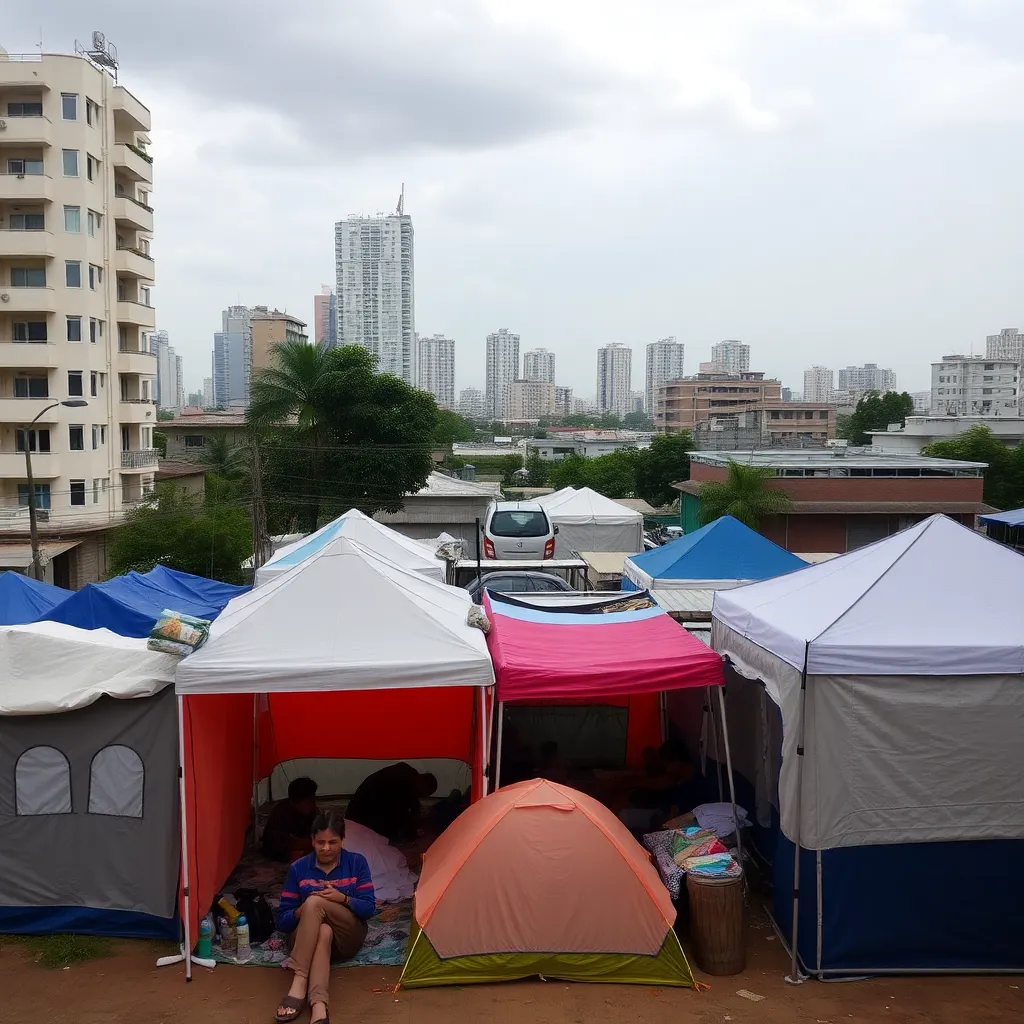Rising Homelessness in Seattle Reflects National Crisis
SEATTLE — Homelessness continues to be a pressing issue in Seattle and across the United States, with a staggering 18.1% increase in the homeless population reported this year. Factors such as a lack of affordable housing, natural disasters, and a surge in migration have largely driven this rise, according to a report released by the U.S. Department of Housing and Urban Development (HUD).
Homeless Count Overview
In January, a census mandated by the federal government counted more than 770,000 individuals experiencing homelessness throughout the country. However, this number likely underestimates the full scope of the issue, as it does not account for individuals temporarily staying with friends or family due to lack of permanent residence.
This recent increase follows a 12% growth in 2023, which HUD attributed to escalating rents and the cessation of pandemic assistance programs. Alarmingly, many of those experiencing homelessness this year are doing so for the first time, highlighting a troubling trend.
Every 23 out of 10,000 people in the U.S. are homeless. Furthermore, the homeless population is notably overrepresented among Black individuals. In Washington state, the situation is particularly dire, with 31,554 people counted as homeless, marking the third-highest total in the nation.
Rising Chronic Homelessness in Washington
Washington has seen a concerning increase in chronic homelessness, defined as people who have experienced homelessness multiple times over a year. The state recorded an increase of 4,295 individuals with chronic homelessness since last year, amounting to a staggering 55.8% increase. Over the past 16 years, the number of chronically homeless individuals in Washington has jumped by 360.5%.
HUD’s agency head remarked, “No American should face homelessness, and the Biden-Harris Administration is committed to ensuring every family has access to the affordable, safe, and quality housing they deserve.” They further emphasized the need for evidence-based strategies to prevent and end homelessness.
Family Homelessness and Disaster Impacts
A troubling trend noted in the HUD report is the nearly 40% increase in family homelessness, especially significant in large cities experiencing an influx of migrants. For instance, family homelessness more than doubled in cities such as Denver, Chicago, and New York City.
According to the report, almost 150,000 children were reported homeless on a single night in 2024, reflecting a 33% increase from the previous year. Natural disasters have also contributed to this rising count, with the recent devastating wildfire in Maui leading to thousands of individuals dependent on emergency shelter.
Calls for Change and Solutions
Advocates point to chronic underinvestment in resources aimed at securing safe, affordable housing as a key factor driving up these numbers. “Increased homelessness is the tragic, yet predictable, consequence of underinvesting in the resources and protections that help people find and maintain safe, affordable housing,” said a leading housing advocate.
Former executive director of the U.S. Interagency Council on Homelessness, Robert Marbut Jr., criticized the rising numbers, labeling them “disgraceful,” and called for a shift in focus, emphasizing the need for treatment for substance use and mental health rather than solely permanent housing solutions.
Community Actions and Positive Trends
Cities are grappling with increasing public pressure regarding homelessness, leading to stricter local ordinances against camping. The recent Supreme Court ruling allowing outdoor sleeping bans has intensified efforts to manage homelessness, though advocates caution this approach could criminalize those simply seeking shelter.
Despite the overall increase, there are some significantly positive trends. For example, homelessness among veterans has decreased by 8%, showing that targeted measures can yield results. Certain cities, like Dallas and Los Angeles, have noted decreases in their homeless populations due to successful systemic overhauls aimed at providing better support and housing.
Washington state’s ongoing housing affordability crisis has exacerbated the plight of many, leaving individuals and families struggling without stable shelter. Advocates argue that true solutions need to address multiple interconnected issues including housing costs, healthcare, and support systems for vulnerable populations.
Conclusion
As the numbers worsen, it is evident that a coordinated effort at both local and national levels is necessary to combat the growing homelessness crisis. With widespread commitment, funding, and policy solutions, there remains hope for turning the tide against homelessness in Seattle, Washington, and the wider United States.







